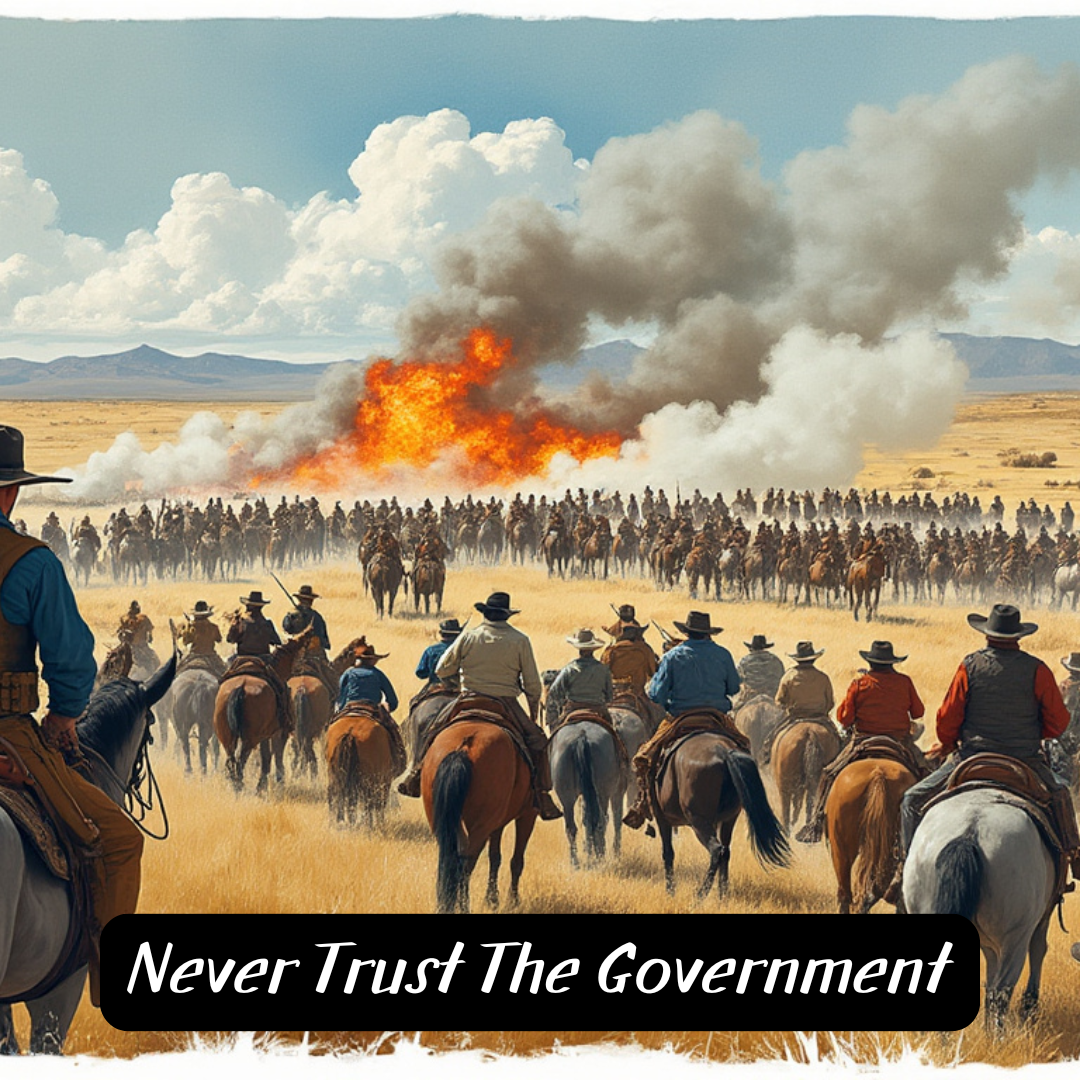With Vem Miller being in the news recently (where he was falsely accused of being at a Trump rally with the intent of trying to assassinate the former president. Nothing could be farther from the truth, but, since Vem is releasing documentaries that expose government corruption, he is a target. So, let's look at his latest release, "Bundy vs. Deep State - An Original America Happens Documentary".
The Bundy Ranch standoff, which occurred in 2014, has become a flashpoint for discussions on government authority, land rights, and the potential for corruption within the U.S. government's handling of public lands. Here's a detailed look at the events, the allegations of corruption, and the broader implications:
Background
Cliven Bundy, a Nevada rancher, found himself at the center of controversy when the Bureau of Land Management (BLM) attempted to confiscate his cattle for grazing on federal land without paying the required fees, amounting to over $1 million. This dispute, which had begun in the 1990s, escalated into an armed standoff when Bundy, supported by a mix of militia groups, armed civilians, and sympathizers, confronted federal agents.
The Allegations of Corruption
- Excessive Use of Force: Critics argue that the BLM's response was disproportionate, involving armed agents, helicopters, and snipers, which seemed more like a military operation rather than a land use dispute. This has fueled accusations of government overreach, suggesting an intent to intimidate rather than enforce law. We have seen this far to many times - where our government is weaponized against honest, hard-working American taxpayers.
- Legal Ambiguities: Bundy's case was rooted in a complex web of legal interpretations regarding public land rights, states' rights versus federal jurisdiction, and the application of environmental laws. Allegations surfaced that the government selectively enforced laws to punish Bundy, potentially due to his outspoken resistance against what he saw as federal overreach.
- Potential Motives: Some conspiracy theories suggest that the government's actions were motivated by hidden agendas, like preparing the land for alternative uses, possibly for solar farms or other developments, where high-profile politicians might benefit. While these theories lack solid evidence, they contribute to the narrative of corruption.
- Handling of the Aftermath: The decision to back down from the confrontation after public and media scrutiny, along with the eventual dismissal of charges against Bundy due to prosecutorial misconduct, raised questions about the government's commitment to justice or whether it was more a political calculation to avoid further escalation.
Broader Implications
- Government Accountability: The Bundy Ranch incident highlighted issues of government accountability and transparency. The initial heavy-handed approach, followed by a sudden withdrawal, suggested to some that government actions might be driven by public perception rather than legal or ethical standards.
- Public Trust: The standoff eroded trust in government institutions among many, particularly in rural communities where land rights are fiercely defended. This erosion of trust has broader implications for how government policies are perceived and received.
- Legal Precedents: The case set a precedent for how similar disputes might be handled in the future. The government's reluctance to forcefully resolve the situation might encourage others to resist federal regulations through similar confrontations.
- Political Polarization: The incident became a rallying cry for both sides of the political spectrum, with some seeing Bundy as a hero standing against tyranny, while others viewed him as a lawbreaker exploiting loopholes. This polarization reflects deeper divides on the role of government in American life.
Conclusion
The Bundy Ranch fiasco encapsulates more than just a dispute over grazing fees; it's a microcosm of larger debates about government power, individual rights, and the potential for corruption or at least mismanagement within government operations. While not all allegations of corruption hold up under scrutiny, the event undeniably pointed to systemic issues in how land use, law enforcement, and public rights intersect. The lasting impact of this standoff continues to influence discussions on government overreach, urging a closer examination of how power is wielded in the name of public interest.
This case study remains a poignant reminder of the continued disintegration of the rights of WE THE PEOPLE when individual liberties clash with governmental regulations, urging all US Patriots to hold the government accountable and to never ever give up our rights to the corrupt deep state.


